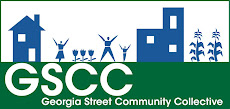
(Taken from SidewalkSprouts)
An economic depression between 1892 and 1897 caused poverty and unemployment, in turn causing a higher demand for community gardens in cities. The Mayor of Detroit, a city hit hard by the depression, asked that owners of vacant lots allow the unemployed to grow vegetables for subsistence on their land. These lots were nicknamed "Pingree's Potato Patches" after mayor Hazen S. Pingree. It was hoped that the cultivation would not only increase food supply, and therefore supplement income, but also provide a feeling of self respect and independence. The gardens saved money because taxes did not need to be raised as much to help support the unemployed. The city initially invested $3,000 in the urban gardening program. In the first year, $12,000 worth of vegetables and potatoes were harvested, meaning $9,000 of relief expenditures were saved. Over several years, a total of 2,000 families participated in the urban gardening program in both Detroit and Buffalo. These programs made unemployed people feel useful, unlike the make-work welfare programs that were looked upon as second-rate jobs. There were many benefits attributed to this program, including hope, self-respect, independence, self-reliance, and the therapeutic benefits of fresh air and exercise, as well as financial savings. Another benefit identified was that immigrants would socialize in these gardens and therefore learn the "American way" more rapidly and easily become part of the United States melting pot. Several other smaller scale urban gardening programs were started in Minneapolis, Denver, and Chicago.





No comments:
Post a Comment